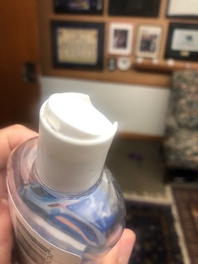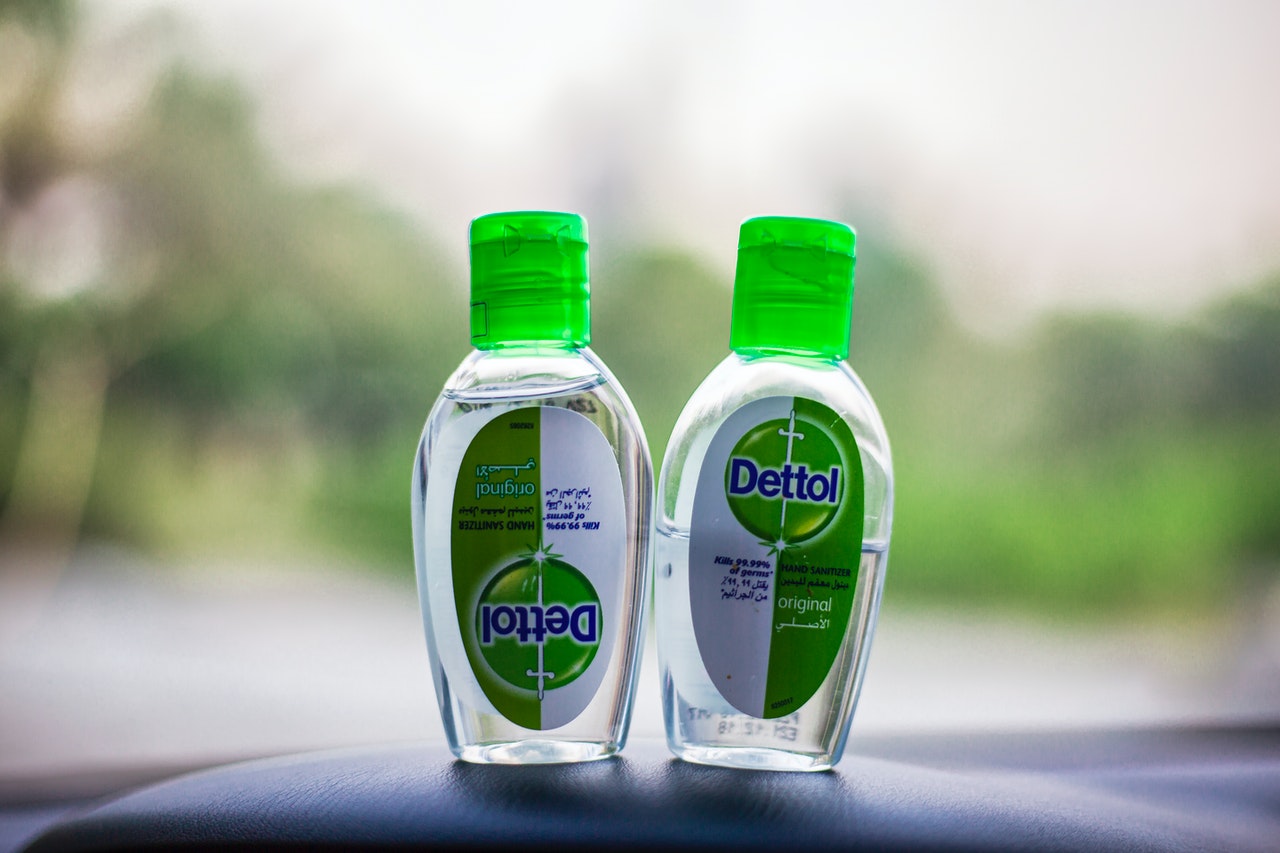COVID-19 has provided us with an endless source of new anxieties and things to worry about: Crowds, indoor spaces, touching door handles, sharing guacamole, elevator buttons, and of course, the sound of coughing. Allow me to add one more item to your list: Hand Sanitizer.
What Dangers Do I Need to Know About?
Hand sanitizers are typically comprised of 60 to 95 percent isopropyl alcohol or ethyl alcohol and come in a gel or liquid form. An alcohol concentration of greater than 60 percent kills the Sars-CoV-2 virus that causes COVID-19, making hand sanitizers a key tool in our war against infection. Alcohol, as most of us know, is highly flammable. What may not be so obvious is that it has a relatively low boiling point. When exposed to heat, it can result in an increase in vapor pressure within the container.
You may have experienced this phenomenon yourself when you get in your car at the end of a hot day and reach for the hand sanitizer you keep in your car’s side pocket. As you flip the lid open, the gel may squirt out unexpectedly due to an increase in vapor pressure Most hand sanitizer lids close the container but do not form a perfect hermetic seal, so the vapor pressure while increasing in the container, is able to dissipate to some extent. The simple fold down flip lid and pump dispenser would be examples of imperfect seals. However, there are other hand sanitizer lids that form a much tighter seal. When that seal is broken, the pressurized gel can come squirting out unexpectedly. There has been such an extraordinary demand for hand sanitizer that its production and manufacture has been contracted out to all sorts of companies and factories, many of which have no previous experience with this product. Some containers have a pop-up lid as is often used in shampoo bottles. This is the type of lid where you push on one side and the opposite side pops up.

This type of lid can create a much tighter seal, making it difficult for the vapor pressure to release and increasing the risk of a high-volume ejection. Unfortunately, the danger isn’t just getting sanitizer gel on the roof of your car; if it gets in your eyes, it can have devastating consequences.
A few short weeks ago, my own daughter had this happen to her with a pop-up hand sanitizer lid and the gel sprayed directly in her eyes. After thorough flushing, she was still in pain and could not see out of either eye. We took her to a local emergency room, where they held her for four hours flushing four liters of water through her eyes in an attempt to remove the alcohol gel. Alcohol is highly alkaline; your eyes do not like alkaline substances, as they can cause serious and permanent chemical burns. My daughter’s right cornea was completely sloughed off by the alcohol gel. Thankfully, in young and healthy adults, the cornea has an amazing ability to regenerate. After a painful and blind week, she is on the road to recovery, but she could end up with a permanent partial vision loss.
I felt I needed to get this story out as a cautionary tale. The global pandemic has resulted in a bottle of hand sanitizing gel in about every car on the planet. With warm summer months approaching, there is a real danger of eye injuries particularly if the gel container has a lid that forms a tight seal. This danger is compounded by the fact that most people would be completely unaware of this potential hazard.
Has Hand Sanitizer Been Falsely Accused?
Recently, there have been stories circulating about the potential of hand sanitizer bottles left in cars to explode. Some of these accounts claim that the heat in the car caused the alcohol gel to rise in temperature and vaporize. This alcohol vapor allegedly then seeped out of the container and filled the car, which ignited and caused either a fire or explosion. Here is a link to a Snopes article that claims to debunk many of these accounts of exploding hand sanitizer bottles:
I have no idea whether hand sanitizer bottles can explode in a hot car. What I do know is that when you search this topic, you find a lot of discussion that says this untrue. People may read this and think that it’s safe to leave their hand sanitizer in the car and not realize what I know from firsthand experience is a very real danger of the gel ejecting from the bottle after becoming pressurized.
One More Reason Not to Leave Hand Sanitizer in the Car
There may also be another more subtle risk to leaving hand sanitizer in your car and that is that if you do have a container that allows the increased vapor pressure to dissipate what is happening is the gel in the bottle is boiling off some of the alcohol content which vaporizes into the atmosphere. Naturally, what is left in the bottle is a gel with a lower concentration of alcohol. The FDA recommends using hand sanitizers with a minimum content of 60 percent alcohol to kill the COVID-19. Many of these products start with alcohol percentages of 62 to 65 percent. If you keep the container in the heat of your car, you may be slowly reducing the alcohol content in the gel to the point where it becomes less effective.
Recall of Certain Hand Sanitizer Brands
I can’t leave this article without mentioning the recent recall of several brands of hand sanitizer that were made in Mexico by a company called Eskbiochem SA de CV. They were found to contain methyl alcohol instead of ethanol or isopropyl alcohol. Methanol, also known as wood alcohol, is extremely toxic to humans and can cause mental confusion, nausea, blindness, organ failure and death. Unfortunately, it can also be absorbed transdermally through the skin so read those labels and make sure you don’t have a recalled product. Below is a link to the FDA warning with a list of the brands to be avoided:
Hand Sanitizer is our friend, but it is important to be aware of these hidden dangers that might not be obvious. Stay safe out there!





